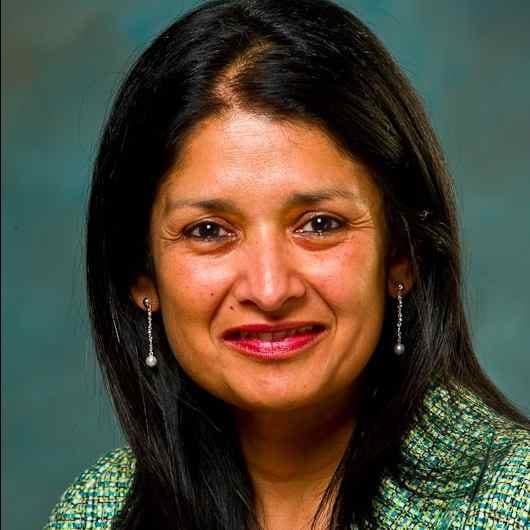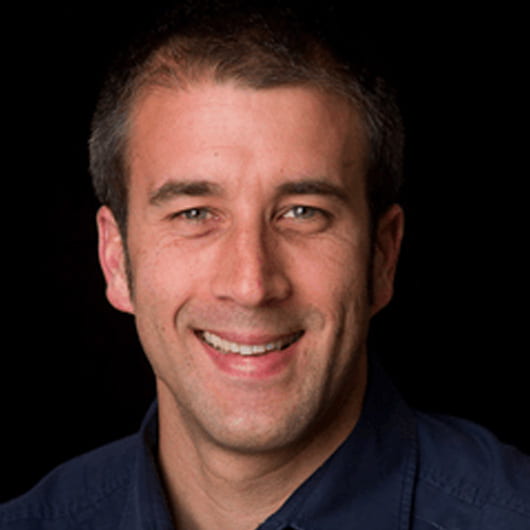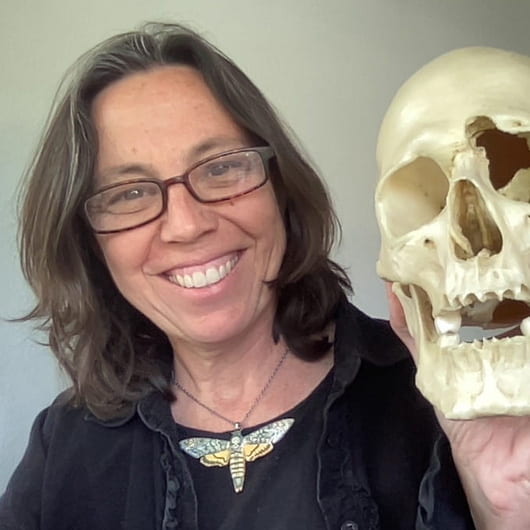SJSU will host its 22nd Annual Faculty Service Recognition Event with a multi-day virtual celebration this year—culminating with a live presentation on April 15 of this year’s four exemplary faculty award winners and two remarkable 40-year honorees.
From April 12 to the 14, the university will celebrate 135 faculty who have reached milestones of service for 15, 20, 25, 30 and 35 years. Faculty members will share what they love about SJSU via videos.
“These honorees are to be lauded for their dedication, passion and commitment to their students’ personal and academic growth, and to the advancement of knowledge in their respective disciplines,” said SJSU President Mary A. Papazian. “Each one has made important contributions through teaching, research and scholarship, and we are grateful for their service.”
The four distinguished faculty members below are selected to receive the following awards for noteworthy achievement in teaching, scholarship and service.
President’s Scholar: Matthew Spangler, Professor of Performance Studies, Department of Communication Studies
Distinguished Service: Anuradha Basu, Professor, Lucas College & Graduate School of Business
Outstanding Professor: Lionel Cheruzel, Professor, Department of Chemistry
Outstanding Lecturer: Mary Juno, Lecturer, Department of Justice Studies
Read a Q&A with each recipient below.
How the faculty awards started
Each of San José State’s four faculty awards has its own unique story, but they all emerged from a need to acknowledge exceptional faculty, starting with the university’s core mission of teaching and service.
In 1966, SJSU bestowed its first faculty award for Outstanding Professor, based on teaching effectiveness. The next award for President’s Scholar was bestowed in 1974 for remarkable scholarship and creative pursuits.
The third, Distinguished Service, was initially presented in 2000, to recognize outstanding service and the substantive contributions of SJSU faculty to their professional communities and beyond. In 2005, the Outstanding Lecturer award was created to recognize the contributions and teaching of a lecturer faculty member.
Who makes the nominations and decisions?
All areas of the campus community are invited to contribute nominations for faculty awards. Committees consisting of previous award winners, administrators and students (except for the President’s Scholar award) review the nominations and make their recommendations to the president, who then makes the final determination of the winners.
Read the full list of award criteria.
2021 Faculty Award Winners
Matthew Spangler, Professor of Performance Studies
Department of Communication Studies
President’s Scholar Award
Joined SJSU: 2005 | Research Focus: performance studies, an interdisciplinary field that uses performance as an artistic practice and theoretical lens to explore topics of social significance. Spangler’s research explores the representation of refugees and immigrants through the literary and performing arts.
Creative Activities: In addition to his scholarly work, Spangler has written numerous plays, among them an adaptation of Khaled Hosseini’s novel The Kite Runner, which premiered at San José State, and has since won many awards and been produced by theatres around the world, including on London’s West End and the Dubai Opera House.
Print-Based Scholarship: Spangler has published many journal articles on immigration in the performing arts, an academic book, several plays, and has a new book currently under review about adaptation and immigration in Irish theatre. The National Communication Association recently bestowed him with the Leslie Irene Coger Award for Distinguished Performance, the most prestigious award for live performance in the field of communication studies.
What brought you to San José State?
Matthew Spangler (MS): I was hired to create a curriculum in performance studies within the Communication Studies Department. I was living in Chapel Hill, North Carolina, at the time, where I did my PhD, and the idea of creating an entire curriculum in my area of research and artistic practice was very exciting to me.
What inspired you to study this subject area?
MS: I was a first-year undergraduate at Northwestern University, thinking I would study law, and I happened to take a few courses in performance studies with amazing faculty who literally changed my life. The idea of using the performing arts and storytelling to engage the world felt like the only thing I ever wanted to do.
Later, I was studying for my master’s degree at Trinity College in Dublin, Ireland, and immigration became a topic I was gradually more and more interested in.
What do you enjoy and/or surprises you the most about your work?
MS: When you work at the intersection of the performing arts and immigration, as I do, you get to meet some incredible people from all over the world. It never ceases to amaze me how fortunate I am to work with the people I do. In some cases, I might be writing an article about their work, or maybe we’re collaborating on a theatre project together, or I’m bringing them to campus to meet with my students. Sometimes I stop and think how lucky I am to know such amazing artists and scholars.
What does it mean to you to receive the President’s Scholar Award?
MS: To receive the President’s Scholar Award is a tremendous honor, and to say that does not do justice to how deeply moved I am. In the nearly two decades I have been at San José State, this university has provided a terrific home for my creative and scholarly work.
I am exceedingly grateful to my colleagues, and, in particular, I am grateful to the students who have deepened my work, inspired me, taught me, and occasionally, have traveled with me around the world on research trips, or whom I have proudly watched give conference presentations in far flung locations. San José State is a special place for a number of reasons, probably the biggest being the students.
And to receive this award during the current era of COVID-19—an award for work at the intersection of the performing arts and immigration—at a time when most theatres have been completely dark for over a year, and immigrants are facing ever more obstacles in their ability to move, is testament to the humanity of this university.
There is probably no time in my life when this award will mean as much as it does right now.
Anuradha Basu
Professor of Entrepreneurship and
Director of Silicon Valley Center for Entrepreneurship
Lucas College & Graduate School of Business
Distinguished Service Award
Joined SJSU: Fall 2003 | Research focus: immigrant and minority entrepreneurship.
Latest Research: “A Review of Immigrant Entrepreneurship Research.” Basu is also researching the experiences of LatinX entrepreneurs in Silicon Valley, in collaboration with a former student, who is a young SJSU alumna and Latina entrepreneur.
What brought you to San José State?
Anuradha “Anu” Basu (AB): In 2002, I was a visiting scholar at Stanford’s Center for International Development, having relocated with my family from the UK to the Bay Area. At a Silicon Valley networking event, I learned that SJSU was looking to hire a tenure-track faculty to launch their entrepreneurship program. I had recently set up an Entrepreneurship Center at the University of Reading, UK (my previous employer). Now, I could try my hand at doing the same here, in the heart of Silicon Valley.
What inspired you to study this subject area?
AB: As an Indian immigrant in the UK, I was curious to understand why South Asian immigrants in the UK were motivated to establish their own businesses in an unfamiliar business environment. I wanted to highlight the fact that, contrary to the public perception that immigrants were a burden on society, many British South Asians had created successful businesses, were large employers, and had a significant positive impact on the UK economy.
My research continues to be driven by a passion to shatter myths and preconceived notions about minority and immigrant entrepreneurs.
What do you enjoy and/or surprises you the most about your work?
AB: The most enjoyable part of my job is interacting with students, helping them learn, and encouraging them to do their best and achieve their potential. Sometimes, a quiet student in class turns out to be the one who writes the most thought-provoking essay, aces the exam, or comes up with the most innovative business idea.
Perhaps the most gratifying part is following my students’ careers after they graduate. Just recently, a former student who won our Silicon Valley Business Plan Competition shared his experience of pitching his startup on Shark Tank.
What does it mean to you to receive the Distinguished Service award?
AB: I am truly honored and humbled to receive this award. It is a wonderful recognition of my effort and commitment to build the entrepreneurial ecosystem at San José State. I could not have achieved it without the support of my wonderful colleagues in the College of Business and beyond, who have helped and continue to help build our entrepreneurial community on campus.
Lionel Cheruzel
Professor, Department of Chemistry
Outstanding Professor Award
Joined SJSU: Fall 2009 | Research focus: bioinorganic chemistry focusing on a particular family of metalloenzymes called Cytochromes P450.
Research activities: Cheruzel recently initiated a Freshman Research Initiative to expose a large number of freshman students to research opportunities in the Department of Chemistry. He has given more than 60 invited talks worldwide including in the US, Europe, Japan and Australia and is the recipient of the 2019 Henry Dreyfus Teacher Scholar Award in recognition of his dedication to teaching and research.
What brought you to San José State?
Lionel Cheruzel (LC): I was attracted to the unique opportunity that SJSU provided to combine my love of teaching with scholarly activity in the heart of the Silicon Valley. I started in fall 2009 right after the economic downturn in the midst of the furloughs. I was very fortunate to receive an offer from SJSU.
What inspired you to study this subject area?
LC: I have always been fascinated by the intricate connections in nature and the central role
that chemistry plays. Being a postdoc at Caltech was an eye-opening experience and
really inspired me to work in this unique field at the frontier between chemistry and
biology.
What do you enjoy and/or surprises you the most about your work?
LC: I have enjoyed supervising and mentoring a diverse and inclusive group in the laboratory
over the years. I have been very fortunate to be surrounded by very talented and
motivated SJSU students. I am proud that many of them went on to successful careers
in prominent graduate programs, professional schools or local biotech companies.
What does it mean to you to be named an Outstanding Professor?
LC: It means a lot to me to receive this award and to have my name in the company of other
great SJSU colleagues. I am also hoping this will bring a bright light on our research
and academic activities and help us recruit motivated students eager to learn. SJSU has
been a unique place to influence and develop young minds in both classroom and
laboratory settings. Watching students develop as scientists and succeed in their
endeavors has been personally rewarding and encouraged my mentoring efforts.
Mary Juno
Lecturer, Department of Justice Studies and Coordinator, Forensic Studies Minor
Outstanding Lecturer Award
Joined SJSU: Fall 2006 | Research focus: identifying causes and sources of error in crime scene investigation, and the relationship between crime scene error rates and CSI education level.
Faculty Advisor: Themis Research Journal of Justice Studies and Forensic Science, a student-run academic journal that publishes original justice-related research by SJSU students. Juno launched Themis in 2013, and as of March 2021, more than 264,000 researchers worldwide have downloaded articles.
What brought you to San José State?
Mary Juno (MJ): I was originally hired to teach one section of one class [in Justice Studies] for one semester. I was asked to return in spring 2007 to teach the same course, and again in fall 2007, to teach two sections of that course. In spring 2008, I taught the same two sections plus a new course. The job had begun to snowball.
I decided to leave my regular full-time job as a crime scene investigator (CSI) at Oakland Police Department and work only at SJSU. This was an enormous leap of faith, but I enjoyed teaching so much that I felt compelled to do it and confident that it was the right move. I have never regretted this decision.
What inspired you to study this subject area?
MJ: I have always been interested in the intersection between science and justice. I studied forensic anthropology as an undergrad and thought I might go in that direction, but I got hired as a CSI first. That was a fascinating job, but also quite difficult—and nothing like TV. In my classes, I stress the realities of crime scene investigation and try to dispel the myths, so that students are clear-eyed about the field they’re getting into.
What do you enjoy and/or surprises you the most about your work?
MJ: I’ve been at SJSU for 15 years, and there is so much I love about it. First, teaching is loads of fun. My students have great senses of humor, and we find something to crack up about almost every day in class. I learn from them every semester, and I keep in touch with many students after graduation. Second, I feel lucky to work in a department with many brilliant and talented colleagues, who make critical contributions to social, economic, racial and criminal justice. And lastly, I very much like the feeling that I am trusted to do my job, to create new classes, and to revise and build programs. I’m grateful to SJSU that I was given that opportunity to contribute.
What does it mean to you to be named Outstanding Lecturer?
MJ: When I first got the news that I had been named Outstanding Lecturer, I couldn’t believe it. I know many lecturers who give so much of their time and energy to this university and to their students, and they all deserve an award. It feels fantastic to be recognized for my hard work and reconfirms for me that I made the right decision all those years ago when I left my job as a CSI!
Please visit the Faculty Service Recognition event website to see the full list of honorees and register for the live presentation on April 15 from 12:30 to 1:30 p.m.




